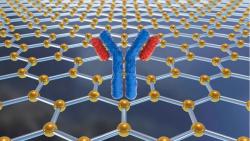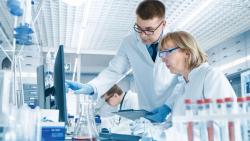
OR WAIT null SECS
- About Us
- Advertise
- Editorial Information
- Contact Us
- Do Not Sell My Personal Information
- Privacy Policy
- Terms and Conditions
© 2024 MJH Life Sciences™ and BioPharm International. All rights reserved.
Outsourcing Report: Contract Players
Technology innovations aimed at increasing yields and shortening development times can be very cost-effective, promising to reduce the need for large capital investments while getting the client into the clinic much faster.
Competition in the contract biomanufacturing industry is increasingly turning on technology rather than capacity. The rationale for the change is straightforward: new biomanufacturing capacity is very expensive to build, and given the uncertainties inherent in biopharmaceutical development, contract biomanufacturers are reluctant to invest in new large-scale capacity (see "Contract Biomanufacturers Turn Conservative, but New Players Add Options," BioPharm International, April 2004).
Jim Miller
By contrast, technology innovations aimed at increasing yields and shortening development times can be very cost-effective, promising to reduce the need for large capital investments while getting the client into the clinic much faster. These innovations also provide a means of securing long-term relationships and continuing revenue streams through technology licensing agreements.
New cell line and expression technologies are a central focus of innovation efforts. Their biggest advantage is their ability to speed up process development by offering a flexible and well-characterized host system into which the client's protein can be engineered. Typically, the manufacturer's expertise with the cell line or host system means it can optimize and scale-up the system relatively quickly. In addition, with time and experience, the manufacturer is able to steadily improve the yields attainable with the system. In cell culture, raising yields from their historically low levels of less than 1 gram per liter to 1 to 2 grams per liter can dramatically alter the supply/demand balance for cell culture capacity.
Lonza Biologics, with its proprietary glutamine synthetase (GS) gene expression system, was one of the first contract manufacturers to offer a proprietary expression system to accelerate development. According to company officials, continued development work has enabled them to push yields from well under 1 gram per liter to 1 to 3 grams per liter.
Now, more contract biomanufacturers are getting into the act. In 2002, DSM Biologics licensed the PER.C6 cell line from Crucell, including the rights to sub-license the technology to its biomanufacturing clients. The PER.C6 technology promises higher yields and faster development times for recombinant proteins and monoclonal antibodies made in cell culture. Since forming their alliance, the companies have announced 10 deals involving DSM biomanufacturing clients sub-licensing the PER.C6 technology.
According to DSM Biologics CEO Andre Bos, the Crucell alliance is part of DSM's strategy to become a top player in the contract biomanufacturing business. "We are seeking a big jump ahead in the biomanufacturing business," Bos said. DSM is moving carefully to expand its manufacturing capacity, having recently revised its Montreal expansion program to reconsider its tank scale and downstream processing requirements and make the facility more flexible.
In the microbial fermentation area, Dowpharma has been promoting its Pseudomonas fluorescens microbial expression technology. According to Dowpharma Business Director Nick Hyde, the technology promises better performance than other microbial systems, notably E. coli, including higher expression levels, no solid inclusion bodies, and better solubility and activity levels. The company's experience with the technology is extensive — Dowpharma's parent company, Dow Chemical, has been developing the system for 15 years and has used it for the manufacture of recombinant pesticide products and enzymes. Dowpharma offers development services for products incorporating the Pseudomonas fluorescens technology at its San Diego, CA, development facility and can scale up production at its Smithfield, RI, facility.
EQUIPMENT INNOVATION
Not all technology innovation in the biomanufacturing industry is focused on cell lines and expression systems. Start-up biomanufacturer Xcellerex is pioneering new ways to exploit improvements in manufacturing and development equipment.
Xcellerex was founded in 2002 by former manufacturing managers from Millennium Pharmaceuticals. The company opened its laboratories in September 2003. Xcellerex is trying to revolutionize cell culture at both the development and commercial scales. In process development, it is adapting high throughput screening (HTS) technology, originally developed for drug discovery, to accelerate the development of robust manufacturing processes.
According to Xcellerex CEO and founder Parrish Galliher, HTS technology enables the company to test many more combinations of cell lines, media, and other inputs than can be tested in traditional development approaches. Very large experiments of 1,000 data points or more can be run using the HTS technology with fully instrumented microreactors, and process development times can be cut from 18 to 24 months to less than 12 months.
Furthermore, it was noted by Galliher, by identifying the optimum process components early in the development stage, biopharmaceutical companies can eliminate the need to invest in further process development and process changes as they scale up to Phase III clinical trials and commercial-scale manufacturing.
For larger-scale GMP manufacturing, Xcellerex is developing a modularized cell culture system that takes advantage of the latest innovations in process control technologies and disposable components. The company has developed scaleable, disposable, stirred tank bioreactors engineered to incorporate process sensors that monitor and control the culture conditions up to 1,000L scale.
The system includes a manufacturing execution system (MES) that ensures compliance with SOPs, monitors the process, generates real-time manufacturing and QC data, and supports electronic documentation.
Susan Dexter, chief business officer of Xcellerex, said the flexible manufacturing system will have significant advantages over traditional cell culture systems. In particular, because of the use of disposables, the system eliminates the need for plant water systems, which are costly to build and validate.
Galliher said that studies have shown that 70 to 80% of the water used in manufacturing facilities is for equipment cleaning, and disposables reduce or eliminate that requirement. Also, the system's modularity means that Xcellerex has the ability to run multiple processes and products in the same room.
Xcellerex will promote its new manufacturing system with what it is calling the "try-and-take" concept (the company is trademarking the "try-and-take" label). According to Galliher and Dexter, clients will be able to have Xcellerex develop the process and acquire and validate the flexible manufacturing module. Once the system is validated, a client will have the choice of maintaining it at the Xcellerex facility or having the cell culture module moved to its own facility.
Whether it takes the form of expression system improvements or new equipment, it's clear that technology innovation is the future of contract biomanufacturing. The experience of the last five years indicates that the traditional contract biomanufacturing business model is too costly and too risky to be sustainable.
Cook Announces Biomanufacturing Entry
Not everyone is shying away from the high cost of building new cell culture capacity. Cook Group Incorporated, with the support of state and local economic development agencies, has announced plans to start a new biomanufacturing venture. Cook will invest $45 million to convert part of an abandoned consumer electronics manufacturing plant in Bloomington, IN, into a contract cell culture manufacturing facility. The operation will employ up to 200 people initially.
Cook Pharmica, LLC, will be headed by Jerry Arthur. Arthur held an executive position in the former Cook Pharmaceutical Solutions, a contract parenteral manufacturing business that Cook sold to Baxter in 2001 for $225 million. According to Arthur, the success of that fill/finish venture encouraged Cook to look for new contract manufacturing opportunities. Cook is also an industry leader in medical devices.
Arthur said the new cell culture facility will use stirred-tank technology and be scaled to produce phase 1 to 3 clinical trial materials. It will incorporate single-use bag technology and a manufacturing execution system (MES) providing operators and users real-time access to process data. Construction will be completed by mid-2005, but commercial operations will not start until 2007.



